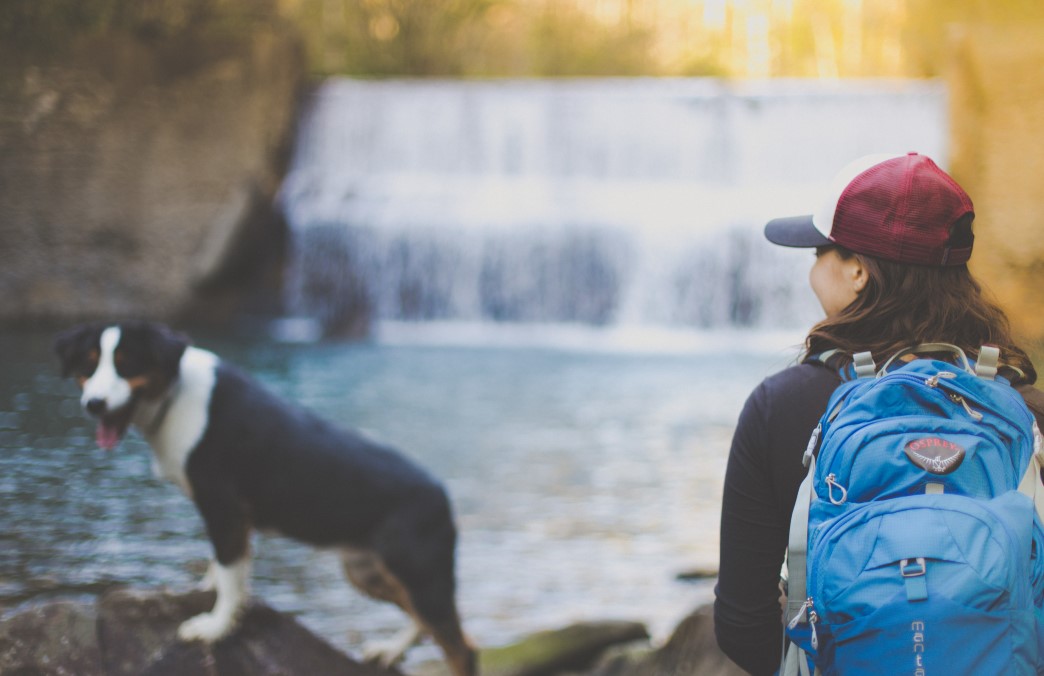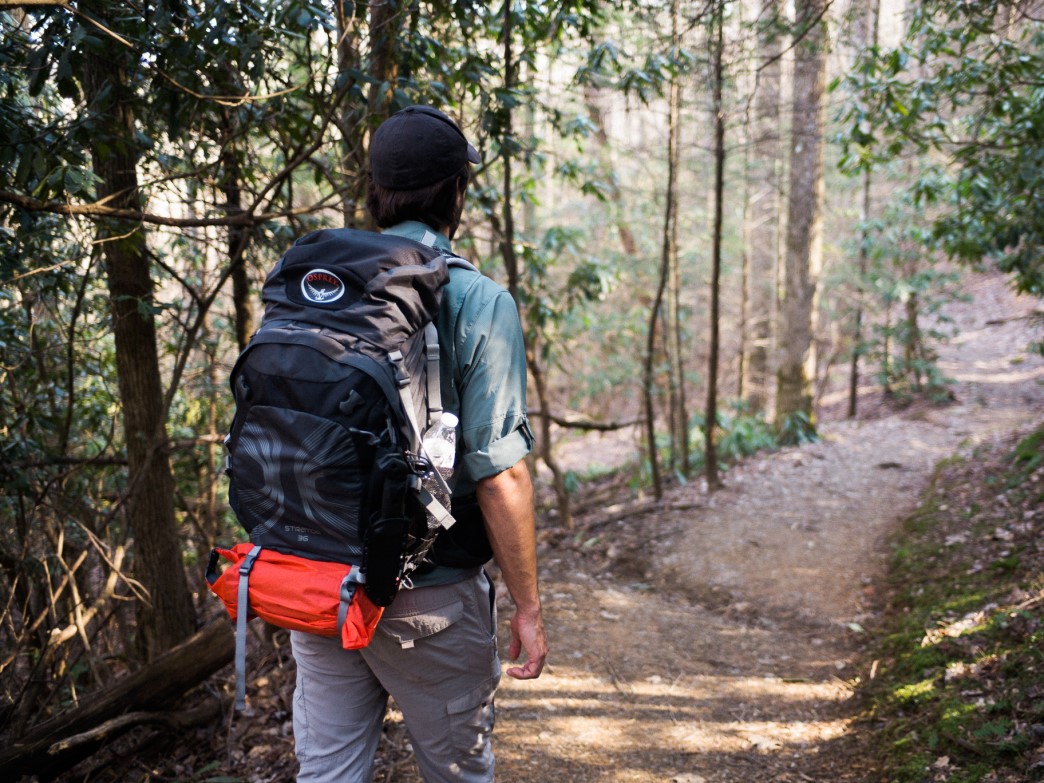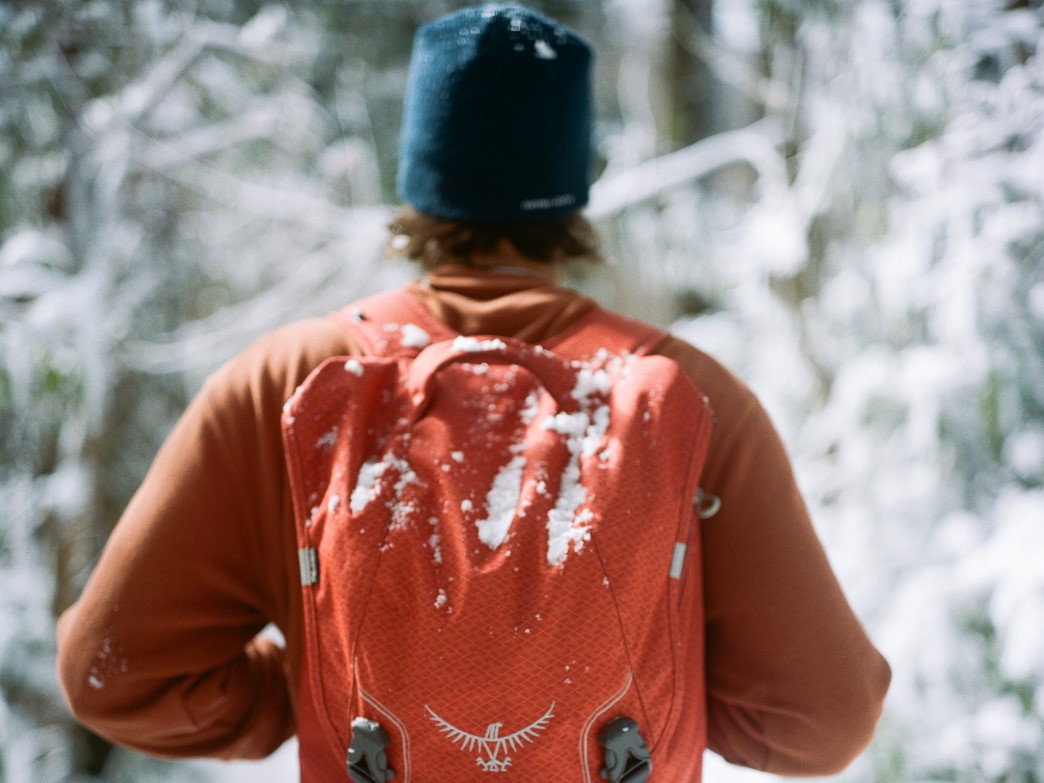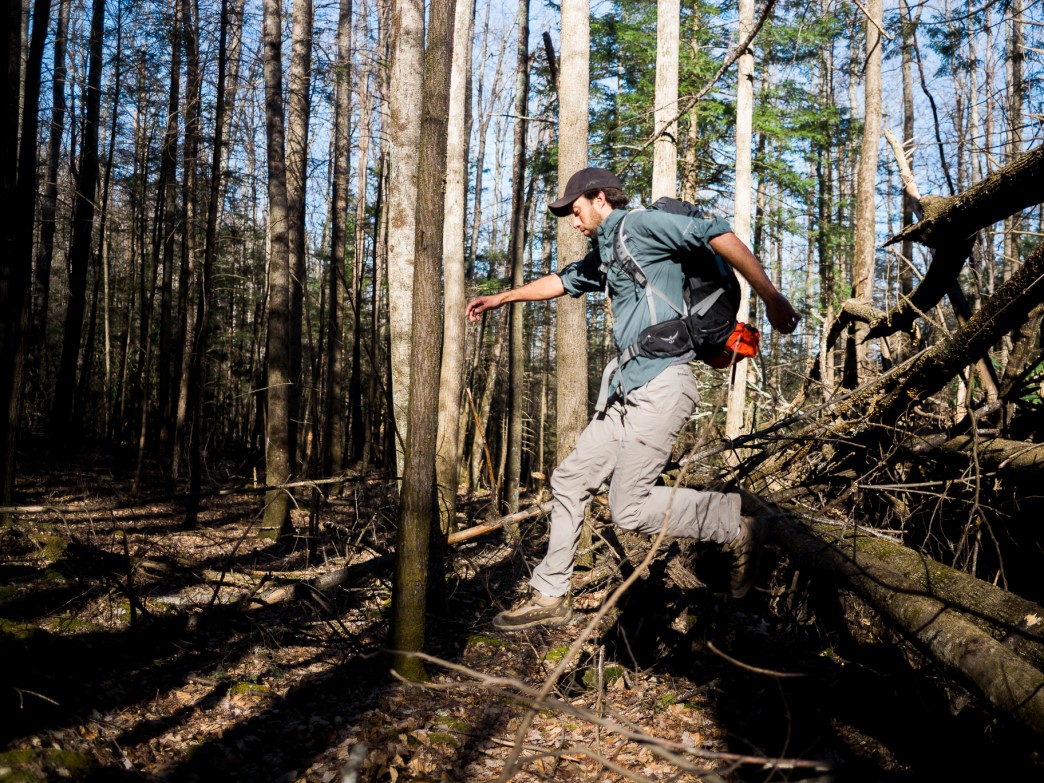 (Jonathan Morua)
(Jonathan Morua)Backpacks are one of those integral pieces of gear that can make or break an adventure. Whether you’re looking to spend a few hours on the trail or even a few months on an epic thru-hike, your pack needs to be comfortable. In order for it to be comfortable, it needs to fit right. That’s why taking the necessary time before your trip to ensure that you have the pack that is right for you is imperative. Otherwise your weekend backpacking trip might just turn into an experience you’ll remember for all the wrong reasons.
Whether you’re in the market for your first pack or just in need of a serious upgrade after 10 years, the staff at your local outdoor store can help guide your pack fitting. Here are a few things to think about next time you head towards the pack wall.

Hen Wallow Falls is a fantastic 4.4-mile round-trip hike to a beautiful 90-foot waterfall in the Smokies. Cody Myers
First things first, why do you need a pack? It’s important to identify what activities you’ll be using the pack for. Are you looking to hold water while training for your first half-marathon? Need something to carry your kiddos to help introduce them to the trails? Skiing? Climbing? Or are you looking to use this for some serious, long distance hiking?
Packs come in all shapes and sizes and range from less than 5-liter hydration systems to 105-liter heavy-duty mountaineering packs—so it really depends on how much you need to carry that will determine what size pack you should be searching for.
Choices for smaller packs (under 50 liters) are usually based more on the features you are looking for—lightweight material, pockets, hydration, etc. While features are still an important part of narrowing down your choice of a larger pack, larger packs also require more technical fitting to ensure comfort.

Summer, winter, rain, or shine, make getting outside a priority. Having the right gear can make all the difference! Cody Myers
Once you’ve narrowed down your choices to less than a handful, it’s now time to try on pack after pack until you find the one that feels most comfortable. One thing to remember when doing so is that it’s important to try the pack on with weight in it. An empty pack feels very different on your hips, shoulders, and back than a full pack, and you need to have an idea as what it will feel like with all of your gear stuffed inside. Most gear shops will have weights or bean bags for you to add before you try it on.
Once your pack is loaded up, it’s time to get it on your back. When putting a new pack on for the first time, remember, there is a whole order as to how you should tighten the straps for a better fit (just another reason why having an expert show you the ropes, er, straps can be very helpful). After all, adjusting the straps out of order can completely change the way the pack sits on your hips, shoulders, and back.
First, you want to find the right spot on your hip to rest the hip belt. A good starting point is drawing a line from your belly button over to your hip bone. You’ll want to put the hip belt right over this part of your hip. Tighten for comfort. The majority of the pack weight should be carried by your hips. Next, tighten the shoulder straps. While you don’t want to carry much of the weight here, these help keep the pack close to your body. Then, adjust the load lifters (which help pull the weight off of your shoulders), and finally adjust the chest strap. There are a lot of different tips, tricks, and measurements that are used for each strap, so be sure you have a knowledgeable staff member there to help identify what these might be.

Having a well-fitted pack makes heading off trail, climbing, scrambling and jumping much less cumbersome. Cody Myers
Once you are fully strapped in, take a walk. Walk around the store, bend up and down, do some squats and see how it feels. Take a few minutes with the pack and tweak the straps where necessary. If it doesn’t feel right in the store, it’s not going to feel right on the trail. Be honest with yourself, and try something else on if even the smallest thing feels wrong.
And remember, the staff at your local specialty outdoor store is trained and has a ton of personal experience on the trail, so they can help answer all of your questions about anything pack-related.
This content was produced for your enjoyment, thanks to a partnership among Osprey Packs, Chaco, and RootsRated.
